President's Perspective
Death is Part of Life and Life is Part of Death
Published
3 years agoon

By Randall A. Bach
I have grieved over more deaths of friends, family, and associates in the past two years than in any other period of my life. Many of those deaths seemed untimely in my eyes, which added to the grief. It felt like families were prematurely robbed of their loved ones. Hebrews 9:27 informs us that we all have an appointment with death. Whether that means there is already a date and time marked in an eternal calendar, I do not know. What it does mean is that except for a few notables in the Old Testament who were taken directly to heaven without dying and believers who are alive when Christ returns, death is inescapable. Sometimes the timing of death seems complete when the person lived a full and good life as a disciple of Jesus. We know their next destination. No regrets. Peace. Sometimes even if the death feels premature to us, it is greeted with resignation and relief if that person had endured suffering. We willingly let go of them because we do not want to see them in continued agony. Sometimes death seems hollow because it is the culmination of a life wasted on corrupted and sinful living, and we groan over what likely awaits that person in eternity.
So this reality has been on my mind and heart at every memorial service and funeral: Death is part of life. There is no Plan B. No alternative. No escape path. No denial. It is destined for everyone, whether rich or poor or any other distinctive category of person. Death is coming; we just do not know when. As I have reflected on the rich blessings from the lives that are now concluded, as I mourn the deprivation of no longer seeing those warm smiles, of no longer hearing those voices and laughs, of no longer singing together in worship, of no longer feeling those loving embraces, I am also moved by this reality: Life is also part of death. Grieving is for a season because there is hope beyond! Death is not the end, only the conclusion of this earthly dimension of living.
1 Thessalonians 4:13-14 (NLT) promises, “And now, dear brothers and sisters, we want you to know what will happen to the believers who have died so you will not grieve like people who have no hope. For since we believe that Jesus died and was raised to life again, we also believe that when Jesus returns, God will bring back with him the believers who have died.” There is only one qualifier in that promise: the believers who have died. Contrary to our culture’s desire to comfort by asserting that every dying person goes to heaven, God’s Word makes no such claim. Rather, the criteria are clear: God will bring back with him the believers who have died.
There is no Plan B. No alternative. No escape path. No denial. It is destined for everyone, whether rich or poor or any other distinctive category of person. Death is coming; we just do not know when.
I am not fond of arguments. They resolve little, if anything, so I do not look for opportunities to dive into or add to an argument. However, several years ago I was in a men’s clothing area of a department store when I heard a young man and an older man engaged in a vigorous debate. I could tell they were talking about the afterlife, and I was so intrigued that I think I inspected every shirt and pair of socks in that department while I eavesdropped. The older man was professorial, knowledgeably intimidating, and clearly an atheist, declaring there is no afterlife! The younger man was a Christian, doing his best to represent a biblical view of life, death, and eternity. He valiantly held ground but was outgunned. I felt for him and decided to insert myself in the role of an innocent bystander and commentator rather than as another debate participant.
“Excuse me, but I could not help but be intrigued by your conversation. How fascinating!” I ventured.
The older gentleman seemed pleased, likely assuming his performance had been appreciated by a bystander. The younger man looked apprehensive, perhaps wondering if someone else older than he would make him feel even more outmanned.
“It occurred to me,” I said as I looked at the older man, “that if you are correct, then this young man will have lost an argument. However, if this young man is correct, you will lose everything.”
As I made eye contact for a moment with the older man, he seemed taken aback. He had anticipated appreciation for his superior debate skills but instead stood speechless, pondering what I had said. The young man’s face registered relief, as if an angel had intervened on his behalf. I did not linger. I had made my point and departed. I could hear the young man, having been encouraged, stating, “Like that man said….”
With the exception of people who are living when Jesus returns, death is inevitable. Life after death is also inevitable. However, what and where will that life after death be? The Bible gives us a few pictures of what heaven is like. My favorite description is from Jesus while He was hanging on the cross. He described heaven to the man next to him, also on a cross, in one word, “paradise.” While I grieve the loss I feel over people who have departed via death, my heart is uplifted and filled with joy as I contemplate that they are in paradise. Indeed, we do “not grieve like people who have no hope.”
Death is part of life; however, life is also part of death! Which leads to an extremely important question: Where will you spend your life in eternity? You and I don’t get to write the terms; God has already done that: “For since we believe that Jesus died and was raised to life again, we also believe that when Jesus returns, God will bring back with him the believers who have died.” Only those who believe in Jesus as Savior and Lord will enjoy eternal life with Him.
Life is short. Death comes with life. Life in eternity is forever.
About the Author
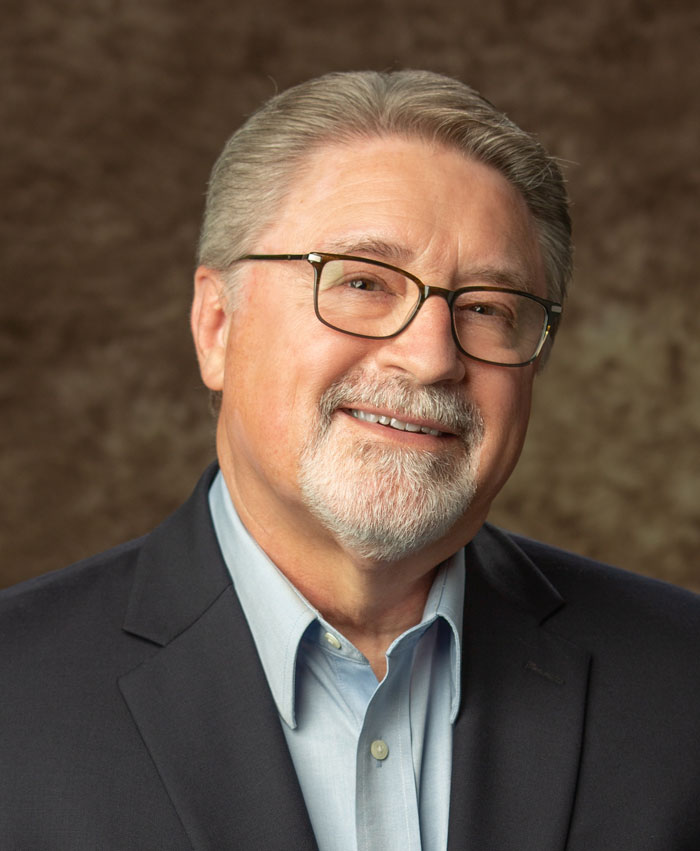
Randall A. Bach delights in opportunities to serve the Lord, including his current assignment as president of Open Bible Churches. He earned a master’s degree in organizational leadership from Regent University. Randall and Barbara, his wife, have been in ministry almost as long as they have been married. They are grateful to have celebrated their 50th Wedding Anniversary in 2021. Randall loves the church, pastors, and church leaders and is convinced that God loves to work through them to make disciples, develop leaders, and plant churches. A voice for Evangelicals, his work has been featured in several publications, including Ethics: The Old Testament, The New Testament, and Contemporary Application. He serves as a member of the Board of Directors and the Executive Committee of the National Association of Evangelicals.
Randall has produced and edited several publications and other resources, including the Message of the Open Bible, We Believe: Core Truths for Christian Living, and a doctrinal course for youth called We Believe for Kids! He also led the creation of Acquire, Open Bible’s online leadership development site.
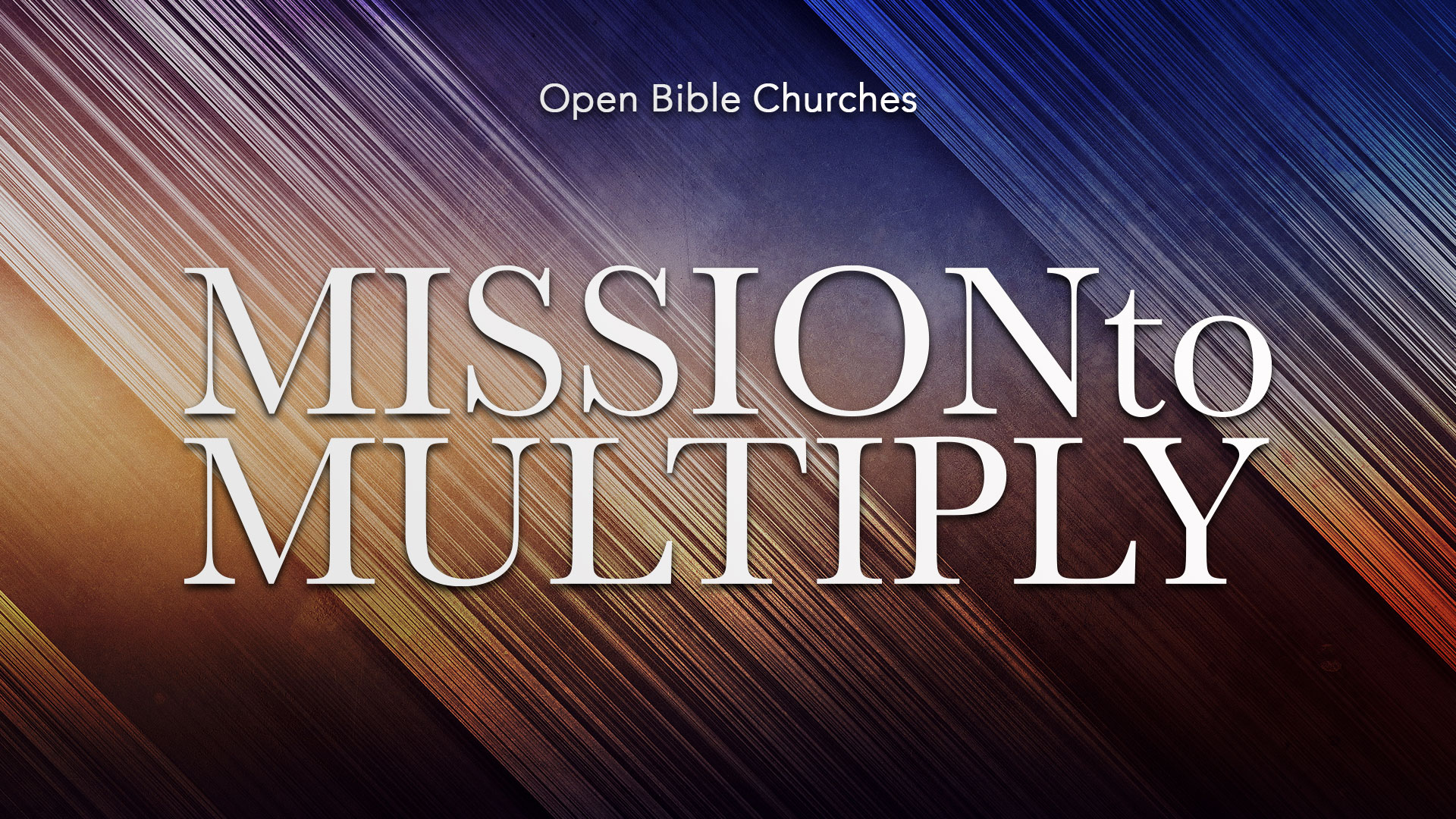
When Jesus said in Matthew 16:18 “. . . I will build my church, and the gates of hell will not prevail against it,” He was making a declaration that His Church was going to be an unstoppable force for the kingdom of God. His Church would expand and multiply, and nothing (not death, hell, or the grave) could keep it from its destiny.
We now are the people He uses, through the power of the Holy Spirit, to accomplish His mission for such a time as this. A few months ago, I heard a quote by author Grant Skeldon that stuck with me. The quote went something like this: “The enemy wants to divide the Church. The Church is busy trying to add. But Jesus wants the Church to multiply.” God had already been speaking and stirring this passion for multiplying within me, and the quote resonated in my spirit.
It’s true, Satan does not want a united Church because he knows when we are united, we become the unstoppable force Jesus spoke of. Therefore, his plan is to try to divide people. He attempts to create jealousy, animosity, backbiting, and gossip in our pastors, churches, and cities, rendering God’s people powerless.
“The enemy wants to divide the Church. The Church is busy trying to add. But Jesus wants the Church to multiply.”
Here is what I would add to Skeldon’s mathematical quote: the world wants to subtract the Church. In culture today, we see many attempts to silence the voice and values of the Church. We see the world trying to erase our God-given assignment and impact, trying to remove our influence by portraying the Church as irrelevant and intolerant.
Too often, churches become distracted, focused on trying to add just a few more people, add a few more programs, add a few more outreaches, add a few more dollars, add a few more baptisms. We become trapped at times in a survival mentality, thinking, “Let’s just get through another Sunday.”
Jesus declared that His Church would not just survive but would thrive and multiply. You see this truth in both the Old and New Testaments, that God’s kingdom and His Church are intended, equipped, and empowered to multiply. From the beginning there is a command that carries a promise: God blesses humanity, saying, “Be fruitful and multiply” (Genesis 1:28). Those words are repeated and ripple throughout the pages of Scripture.
The mandate I sensed God speak to my spirit at National Convention in Dallas as Open Bible transitioned into a new season was a clarion call. Open Bible was to embrace and pursue what God has intended for us, to apprehend what we are apprehended for, to live what is in the DNA of our movement. We, as a fellowship and network of churches, could believe together that God wants to multiply His kingdom through every local church, every minister, all our districts and regions, nationally and globally. The leadership in Open Bible is resolute and passionate about serving our local churches and seeing your ministries multiply, understanding that as they do, we experience God’s promise of multiplication together.
We become trapped at times in a survival mentality, thinking, “Let’s just get through another Sunday.”
You will hear more in the coming weeks and months about how this word from God can be lived out in practical ways. Together in agreement and alignment, we are on a “Mission to Multiply.” We are believing that over the next few years we will see God multiply His kingdom in your churches and ministries. In addition, we will see Him multiply the number of leaders and ministers in Open Bible, the souls being saved, disciples being trained, churches being planted and adopted, and the next generation being raised up and stepping into their destiny. Will you blend your faith and prayers with ours, believing God’s call is for Open Bible to be “fruitful and multiply”?
“Be careful to obey all the commands I am giving you today. Then you will LIVE and MULTIPLY, and you will ENTER and OCCUPY the land the Lord swore to give your ancestors” (Deut. 8:1 NLT, emphasis added).
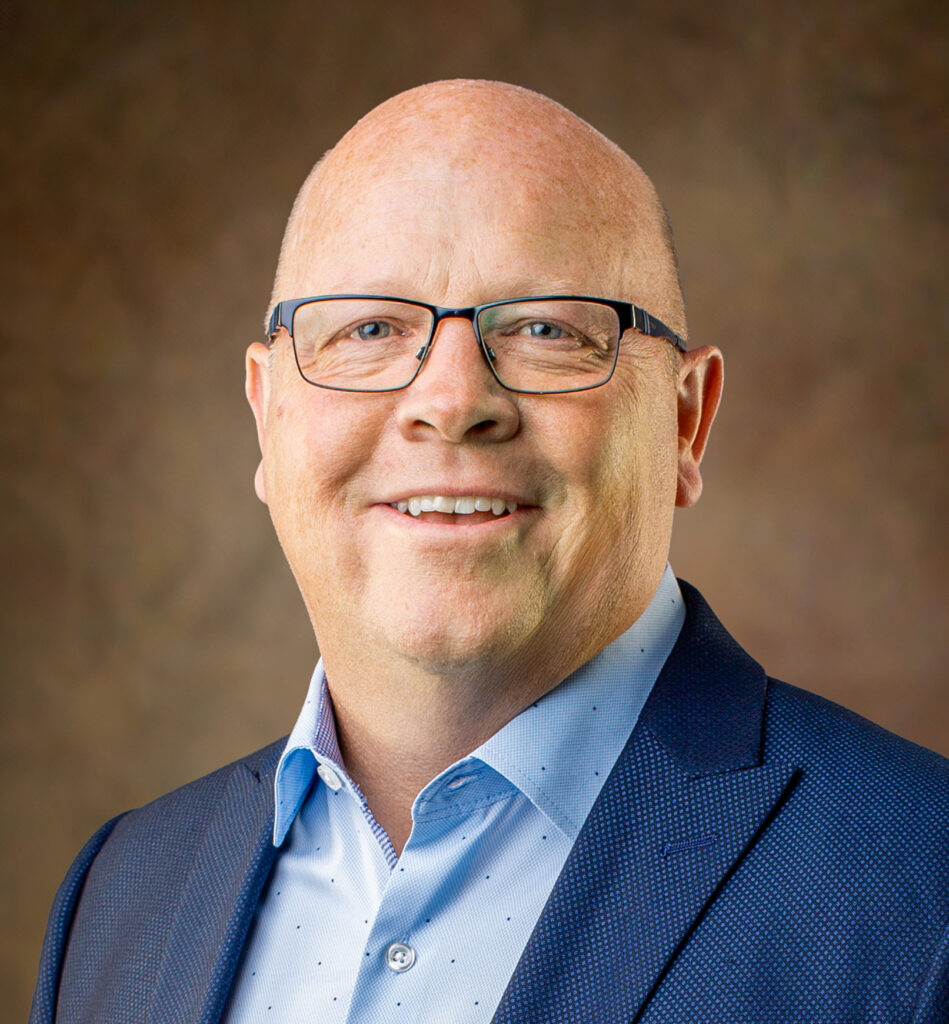
Michael Nortune
Michael Nortune serves as president of Open Bible Churches. He has ministered in the local church faithfully for 35 years. From his start as a janitor and groundskeeper to lead pastor of Life Church in Concord, California, Michael has had the opportunity to gain experience in every capacity within the church throughout his ministry. Not only does he have hands-on experience on the local level, but Michael has also led at the district, regional, and national levels within Open Bible Churches.

The full quote for this title comes from E. J. Fulton, one of the key founding leaders who helped birth Open Bible Churches years ago when Open Bible was yet a dream of what it could become. Two distinct fellowships of churches hailing from revival streams in different parts of the country had begun to unite with potential and possibilities — not out of convenience, nor economic advantages, nor just to increase in size. They dreamed of an association of churches that would fulfill the mission of God, that would evangelize the nations, release ambassadors for Christ, send missionaries, plant churches, and raise and train leaders. Fueled through prayer and faith they pursued this passion.
Inasmuch as we seem so compatible in many ways, our desire for fellowship was engendered resulting in an organic union in 1935. . . . In the providence of God these two groups from such different origins found a heart and life interest and had been welded together by the infusion of the Holy Spirit into a blessed fellowship . . . . God grant that we shall never fail to fulfill our destiny in Christ.” *
By Rev. E. J. Fulton
We are now the living proof and answer to our founders’ God-ordained prayer and faith. Each and every one of us now carries on the call. Today we as an association and family of churches are fulfilling our destiny in Christ, and our dreams are bigger than our memories. God has called us to something so great, so grand, and so powerful that there is no way we can do it on our own or in our own strength. The wonderful thing is that He gives us the grace, strength, and supernatural power to achieve it as we pursue His will.
Though I cherish our heritage and I believe we live in the legacy of those who went before and will leave a legacy for those who are to come, we do not live in 1935, and we cannot just relish the “Good Ol’ days.” The Apostle Paul tells us that though that we stand on the foundation of those before us, “[We] are members of God’s family. Together, we are his house, built on the foundation of the apostles and prophets. And the cornerstone is Christ Jesus himself. We are carefully joined together in him” (Ephesians 2:19-21, NLT, emphasis mine).
We are built on the past with Jesus as our Cornerstone, and we now blaze a NEW trail to the mission and destiny God has for us – our local churches as well as Open Bible Churches as a whole. I believe God is stirring the waters. He is up to something new; can you perceive it?! There is a harvest coming and a fruitful season ahead – a multiplying moment in our future.
We stand at a hinge in the history of Open Bible. Some may call it a window of opportunity or a new day or new season. But when you think of a hinge you picture something that allows a door to swing open into a different place, a new place, a fresh place. I have this burning conviction that Open Bible is preparing to step through that door. Not just for us and this time. Not just for the community around our local church or for those far from Christ now, but for the next generation to come.
We are twelve years away from the one hundredth year celebration of Open Bible’s birth. These next twelve years are the door we walk through together to lay the foundation to propel us into the next one hundred years, should the Lord tarry, of fruitful and powerful ministry. Our legacy will be to build on what was and empower those who are to come to finish the work. You will hear more details about this, but the countdown is on.
You see, Jesus showed us how to accomplish this task. He lived his life on mission and calls us to do the same. When his parents inadvertently left him at the temple at age twelve, they were shocked to return to see him teaching the scholars of the time. When they inquired of him what he was doing, he replied with the famous words: “Did you not know that I must be about My Father’s business?” (Luke 2:49, NKJV, emphasis mine). He would go on to say later, “My nourishment comes from doing the will of God, who sent me, and from finishing his work” (John 4:34, NLT, emphasis mine).
Now we get to work hard and “never be lacking in zeal” (Romans 12:11, NIV) as we pursue the destiny God calls us to and live the mission that unites us: to “Globally Make Disciples, Plant Churches, and Develop Leaders.” “God, grant that we will never fail to fulfill our destiny in Christ.”
The story continues. . . .
*Mitchell, R. Bryant. Heritage and Horizons, Open Bible Publishers, 1982, p. 179.
About the Author

Michael Nortune
Michael Nortune serves as president of Open Bible Churches. He has ministered in the local church faithfully for 35 years. From his start as a janitor and groundskeeper to lead pastor of Life Church in Concord, California, Michael has had the opportunity to gain experience in every capacity within the church throughout his ministry. Not only does he have hands-on experience on the local level, but Michael has also led at the district, regional, and national levels within Open Bible Churches.
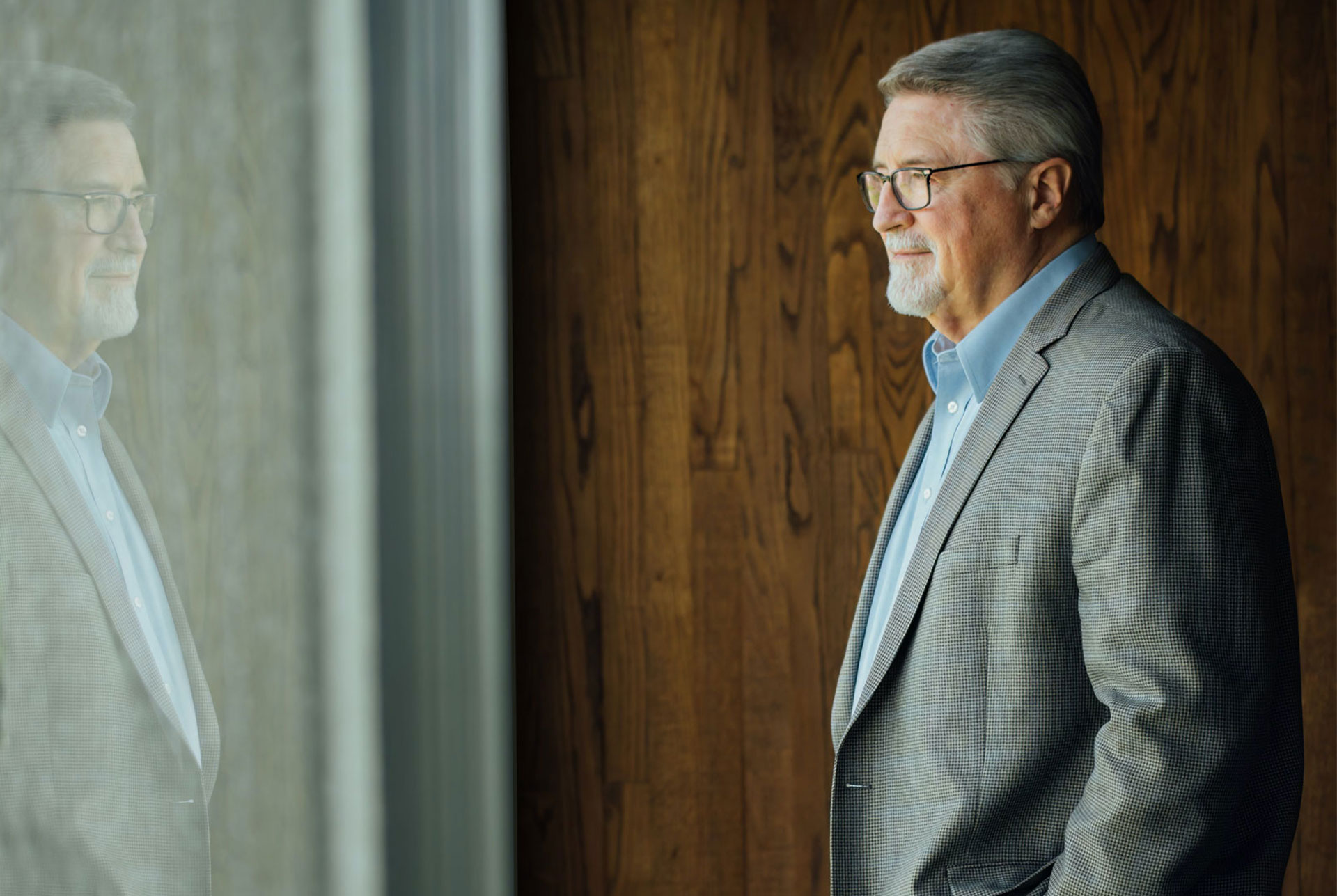
Fifty-one years seem like a long time unless you are looking at them in the rearview mirror. For 51 years I have been honored to serve the Lord in a number of capacities through Open Bible Churches. This is the last article I will write for the Message with the title “President” in front of my name. As I contemplate the conclusion of my service as president at the end of this term, I cannot help but look with thanksgiving in the rearview mirror.
There have been so many experiences, so many opportunities to stretch and grow where I had no previous experience. There were many occasions to look deep inside myself when contemplating my circumstances with the Lord and declare to Him, “I know you placed me here. I need you to help me figure this out and lead where you want me to go.” And for 51 years He has faithfully done that, extending grace on which I was dependent, wisdom when my own was lacking, strength for what I understood would be a distance run, assurance that I would never be alone in doing so, and favor, which I have always known was a gift from Him. If I have accomplished anything, all glory goes to God. I own responsibility for anything else that might not have been as accomplished.
I am an Open Bible “lifer.” Although I don’t remember it, I am confident that I was in attendance at the Church of the Open Bible in Iowa Falls, Iowa, my first Sunday home after birth. My parents were the kind of people every pastor wants – always at church whenever the doors were open, faithful participants on workdays, tithers, loyal to the pastor and wife, and quality ambassadors for the church. The Open Bible church was the center of my family life. School, sports, and anything else was subordinate to church. If there were any schedule conflicts with church commitments, there was no question that church commitments would always reign supreme. Consequentially, my primary relationships were in the church. I looked up to my pastors and had tremendously supportive and affirming relationships with them. Years ago, while most of them were still alive, I wrote a personal letter of loving appreciation to each of them, describing their influence on me and affirming that to whatever degree the Lord was using me then, they contributed to that by believing and investing love, time, and care in me. I loved and respected my Sunday school teachers, including the ones that I quietly assessed as being terrible teachers. I noted the holiness of their lives and their belief in me, and I accepted them because of those attributes. One of those teachers could absolutely put me into a slumber, but I so respected who he was, his devotion to the Lord and the Bible, and his walk of consistency that I endured his teaching. I learned from his life and who he was more than what he taught in Sunday school. I learned to love Open Bible. Open Bible missionaries were our missionaries. Open Bible leaders from anywhere in the country, from east to west, were our leaders. There was no sense of regionalism or local isolation in our family’s love for Open Bible. We were not the only ones or the center of the known universe; we were joyful about being part of a worldwide Open Bible movement. That was so deeply instilled in me that for the rest of my days I have believed in and advocated for an Open Bible vision as primary rather than segments of our group as primary. My loyalty was cemented, even when later tested by major disappointments in people and institution.
The Open Bible church was the center of my family life. School, sports, and anything else was subordinate to church. If there were any schedule conflicts with church commitments, there was no question that church commitments would always reign supreme. Consequentially, my primary relationships were in the church. I looked up to my pastors and had tremendously supportive and affirming relationships with them.“
I was nine years old when the Spirit of God supernaturally apprehended me. I was not looking for Him. He found, filled, called, empowered, and led me from that day forward. I was to never be the same. Although I still had to transition from a boy to a man, I had an assurance from Him that it was all under His control. My life would belong to and be dedicated to Him. All of this transcended my understanding. I did not know where it would lead, but I was aware that because of that life-defining encounter, I was special in God’s sight. I must hasten to add, that did not mean more special or better than other people. There was absolutely nothing comparative with others when I say that I knew I was special. It was not a horizontally applied description; it was strictly vertical, founded in a loving embrace of God that defied both explanation and understanding.
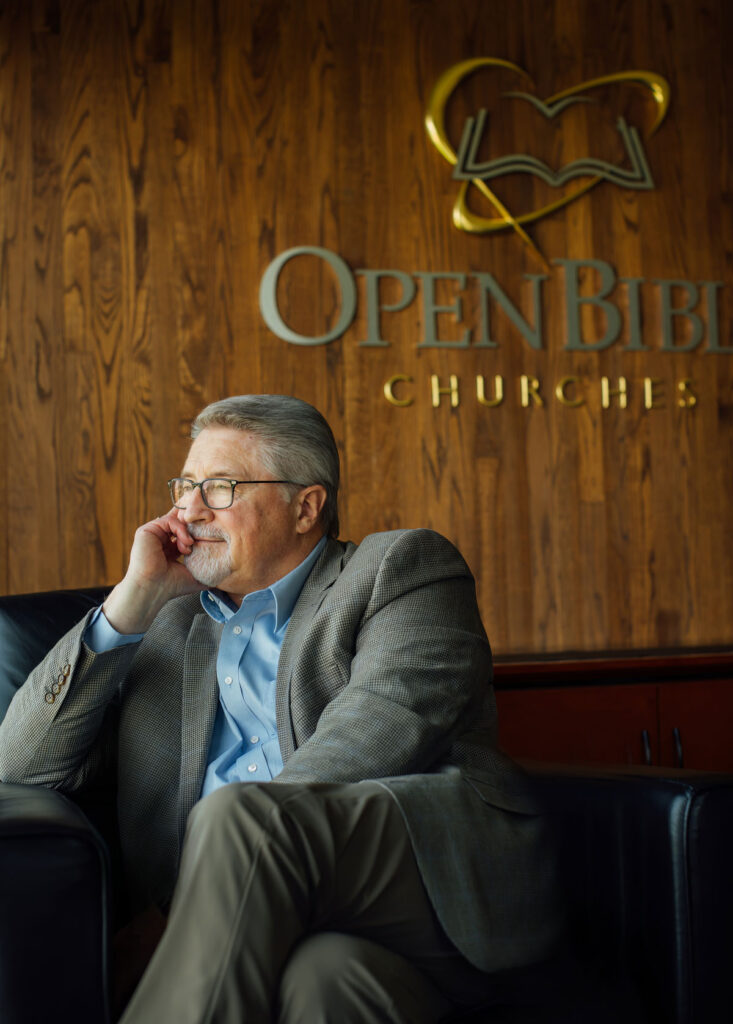
There was an intriguing footnote to my self-discovery when I was in ninth grade. I was in the process of building a campaign, only because others had nominated me, to be elected student body president of my junior high. (I was elected.) Thelma Cave, my pastor’s wife who was gifted artistically and delighted to help with designing my posters, told my mother, “He is going to be president (then called general superintendent) of Open Bible Churches someday.” Why my mother told me about that is one of life’s mysteries because one of Mom’s missions in life was to make sure I would never think too highly of myself. However, as soon as she shared Thelma’s comment with me, I immediately knew in my spirit that I was to lock those words in a side room, never to play with or think about them, only to be unlocked and opened by God, if ever. I would never seek to make what turned out to be a prophetic declaration come to pass. Anyway, I had no thoughts about entering pastoral ministry, which I knew closed that door. Nice affirmation, but it was not going to happen. It was only after it did happen that I reflected on Thelma’s words. She saw what I did not.
However, I never felt called to be a pastor. Isn’t that the only way God calls and can use you? My pastor while I was in high school virtually peppered me about going to Bible college. I felt no such inclination and resisted what felt like pressure from him. I attended a local community college for two years while living at home. (I was frugal and wanted no debt!) I then transferred to the University of Northern Iowa, majoring in history and political science. Although I selected a teacher training track, I was most intrigued by government. My secret desire was to be a born-again senator for the state of Iowa or a United States ambassador. However, through a sequence of events I realized those dreams would not be fulfilled. I would stay with the education track and earn my certification to teach high school. I did my student teaching in the Cedar Falls, Iowa, high school and applied for teaching jobs in social studies as graduation from college approached.
I discovered that a pursuit of excellence can be misunderstood by many people! Pursuing excellence is not the same as perfectionism. To a perfectionist, no pleasure can be obtained by doing a good work. Perfectionism continually haunts with the threat of failure if one would fall short in any way. Nothing can ever be good enough for a perfectionist. By contrast, a pursuit of excellence is a God-honoring resolve to give one’s absolute best at all times, not settling for or accepting mediocrity as a standard. Excellence may not be perfect, but excellence represents the best that can be done, and excellence will always go higher and farther than failure to pursue it.
The teaching market dried up at that time! There were no jobs available, even in the most remote and isolated outposts of civilization. God has His way of working in every situation. I learned that Open Bible College was looking for part-time teachers, so Barbara and I met with the dean. She was hired to be the college bookkeeper and I was hired to teach part-time, at the exorbitant salary of $40 per week. We were thankful! God was good to us, giving us favor and opportunity to serve in many ways. I could never have paid for such a rich education! When I was 24 years of age, I was appointed executive vice president and, at 29, was named president of the college. I will always say I owe Open Bible College more than it ever paid me. That era of service was followed by years of service in several capacities at the national office followed by service as the regional executive director for East Region Open Bible Churches before being called to the presidency.
I have embraced every place of service as the will of God for my life and resolved to give every ounce of my fiber to it. God would ultimately have to do the work, but perish the thought if a lack of energy, will, or work ethic on my part would hinder what He wanted to do! I discovered that inextricably linked to the call of God on my life was a commitment to pursue excellence. They are welded together for me.
I discovered that a pursuit of excellence can be misunderstood by many people! Pursuing excellence is not the same as perfectionism. To a perfectionist, no pleasure can be obtained by doing a good work. Perfectionism continually haunts with the threat of failure if one would fall short in any way. Nothing can ever be good enough for a perfectionist. By contrast, a pursuit of excellence is a God-honoring resolve to give one’s absolute best at all times, not settling for or accepting mediocrity as a standard. Excellence may not be perfect, but excellence represents the best that can be done, and excellence will always go higher and farther than failure to pursue it.
My heart is filled with humble appreciation and thanksgiving for the opportunities both He and Open Bible Churches have given me to serve. I trust I have made a positive difference during my season. Barbara, my lovingly faithful, loyal wife and fellow sojourner, and I have traveled thousands of miles and met for countless hours with pastors and spouses, offering a safe place for personal sharing of burdens and challenges, and providing opportunity to visit about ministry. What an honor that has been, to be invited into the lives and journeys of such dedicated servants of the Lord. It has been much more than strategizing about ministry nuts and bolts; it has been walking together in sharing about life, family, and calling. Barbara and I have been touched by the unrelenting determination of people to follow God’s calling despite health challenges, limitations caused by age, and life-altering circumstances. What a privilege it has been to learn about and pray with them about their journeys. We love all our ministry associates who, over many years, became our friends. How we will miss the opportunities to interact with them during travels.
It is time to pass the baton to my successor (identity unknown at the time of this writing). Please give to him and his wife the love and support with which you have blessed Barbara and me. I look forward to great days of fresh anointing, vision, and fruitfulness throughout Open Bible Churches. Thank you, Open Bible, for your love, for believing in us, and for providing so many opportunities to serve. We will always cherish what we have been privileged to do over 51 years and our hearts are filled with gratitude for God’s never-ending faithfulness.
About the Author
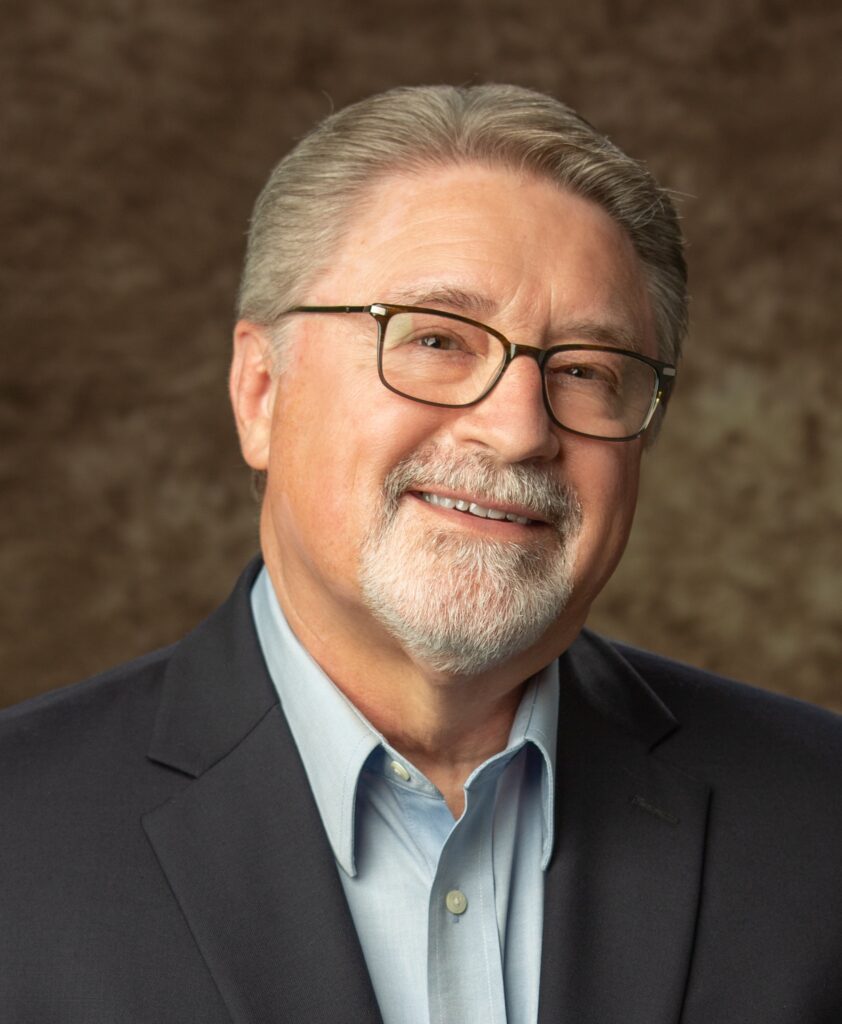
Randall Bach
Randall A. Bach delights in opportunities to serve the Lord, including his current assignment as president of Open Bible Churches. He earned a master’s degree in organizational leadership from Regent University. Randall and Barbara, his wife, have been in ministry almost as long as they have been married. They are grateful to have celebrated their 50th Wedding Anniversary in 2021. Randall loves the church, pastors, and church leaders and is convinced that God loves to work through them to make disciples, develop leaders, and plant churches. A voice for Evangelicals, his work has been featured in several publications, including Ethics: The Old Testament, The New Testament, and Contemporary Application. He serves as a member of the Board of Directors and the Executive Committee of the National Association of Evangelicals. Randall has produced and edited several publications and other resources, including the Message of the Open Bible, We Believe: Core Truths for Christian Living, a doctrinal course for youth called We Believe for Kids, and Thriving in the Spirit, an instructional book about the Holy Spirit and how we should respond to Him. He also led the creation of ACQUIRE, Open Bible’s online leadership development site.
Follow Us
Subscribe to the Message







